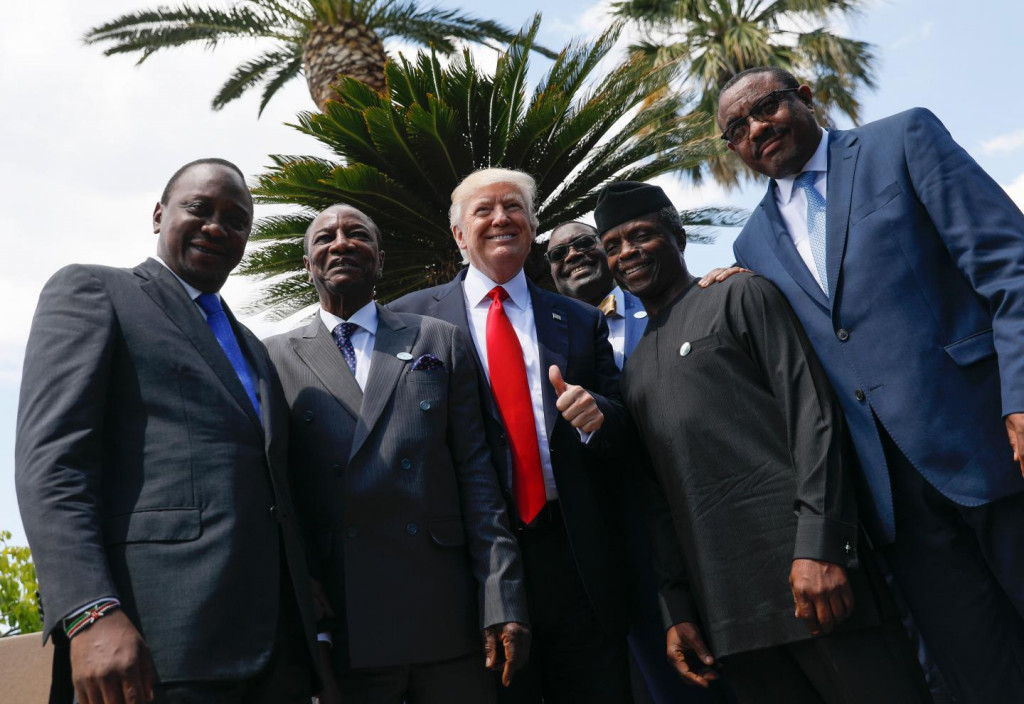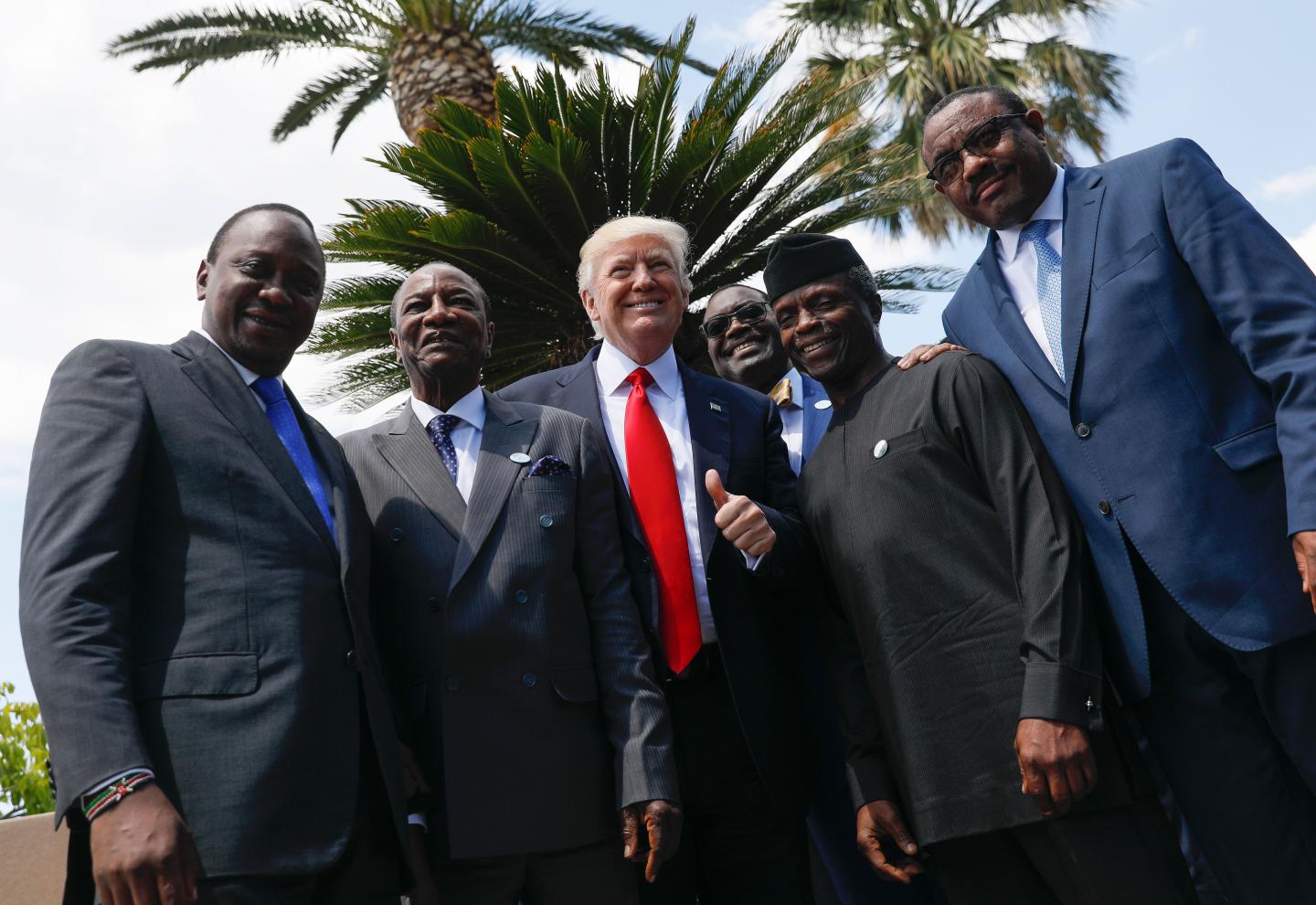Look to China for the main beneficiary of America’s likely retreat from Africa

BY PETER VALE
Anti-terrorism and transactional relationships are likely to be the main features of US President Donald Trump’s Africa policy. But if Trump’s proposed cuts to the state department hold, the US will be less and less of a presence on the continent, according to Prof Gregory F Treverton, who directed the US National Intelligence Council in the Obama Administration.
Treverton, who is currently Professor of Practice at the University of Southern California, is a world authority on security and intelligence. I put a number of questions to Treverton who visited South Africa recently to deliver the keynote address at a South African Council on International Relations conference on South Africa’s relations with Africa.
Why is Donald Trump’s foreign policy so incomprehensible?
I wish I knew! It’s a continual struggle between, on the one hand, the true believers, the American firsters who are anti-trade and anti-engagement in what they see as an unfriendly world, and on the other more traditional conservative Republicans.
The pattern has been that the more traditional conservative Republicans, like the Secretaries of State and Defence, tug policy in a more familiar direction, only to have the president blow the process up with a tweet condemning the Paris climate agreement or labeling Germany an unfair trader. The intensity of the struggle is reflected in the continuing haemorrhage of leaks, all from the very top of the administration.
Didn’t the post-Second World War liberal international order need a shake up?
Yes, and perhaps in that sense we’ll end up thanking Trump, if, and this is a big if, we get through the next years without a major crisis or too much broken crockery. Some of Trump’s complaints, like (America’s Western) allies bearing too little of the burden, have been true for a long time. And the reaction by Americans to the sense that they pay too much for the “public goods” of international economics and security has been going on for a long time.
Polls routinely show that Americans think the country spends on foreign aid 20 or 30 times what it actually does. So, too, the questioning of what we all too easily call the “liberal international order” has been growing over time.
You suggested that Russia under Vladimir Putin, is a declining power. Doesn’t the evidence point in the other direction?
It surely is a declining power, though Putin has played a weak hand extraordinarily well. It is in demographic decline, and far from modernizing the Russian economy, Putin has only deepened its dependence on hydrocarbons. My fear is that as the country declines, it will be all the more tempted to turn to what tools it retains – cyber attacks and nuclear sabre-rattling.
How do you think Trump’s Africa policy will turn out?
In testifying before Congress, Secretary of State Rex Tillerson probably was as clear as the administration could be given its disarray. Africa was in the “turning to other countries” category, and he began with the fight against terrorism. He did, though, mention the economic opportunities in Africa, mostly in the sense of business that might be done. I suspect those will continue to be the emphasis.
So does this mean that anti-terrorism and transactional relationships will be the main features of Trump’s Africa policy?
I think they will continue to be the main drivers, for better or worse, though not the only drivers. The country will have to respond to major humanitarian crises whether the administration wants to or not. And some of the legacy programmes of the last two administrations, like the African Growth and Opportunity Act, or the President’s Emergency Plan for AIDS Relief have had bipartisan support, so we’ll see how they fare in the congressional budget process.
And, if this is so, what are the long-term implications of this for US relations with the continent?
If Trump’s proposed cuts to the State Department and USAID hold, the US will be less and less of a presence on the continent. The main beneficiary, diplomatically, will be China, followed by the Europeans and perhaps even Russia, though it doesn’t have much to contribute except arms sales.
If there is any silver lining, perhaps it will be that Africans, and particularly South Africans, will realize they have to take more initiative on their own.
When it comes to the US itself, you raised the possibility that it might break up? Where you speaking in abstract terms, or is this a real possibility?
I meant it mostly as a metaphor and as a touchstone for thinking about the future. I don’t think it’s likely, but it does have to be considered.
What is certain is that the next few years will be a kind of a guerrilla war, one mostly fought in the courts, between the US federal government and the “blue” (read Democratic Party-controlled) states, led by California, over climate change, immigration and other issues.
What does the Trump presidency mean for these ideas?
So far it seems bound to increase the divide in America. Trump has talked and acted entirely to please his base. He has played on fear, fanning it by portraying the country in dire straits surrounded by a hostile world. So far that base – especially older and often poorer white Americans – seems to have been satisfied by word, words they see as validating them.
But we’ve known from the beginning that Trump can’t deliver on his promises: those “good” low-skilled jobs in manufacturing or mining (as he has portrayed them) aren’t coming back. So we’ll see, but I expect that realization to only deepen the anger and disaffection.
________
ABOUT THE AUTHOR
-
Peter Vale is Professor of Humanities and the Director of the Johannesburg Institute for Advanced Study (JIAS), University of Johannesburg.
-
Professor Gregory F. Treverton, who was interviewed for this article, is Professor of Practice in International Relations, University of Southern California.
________
This article was previously published on The Conversation.
The views expressed in this article are the author’s own and do not necessarily reflect The African‘s editorial policy.


